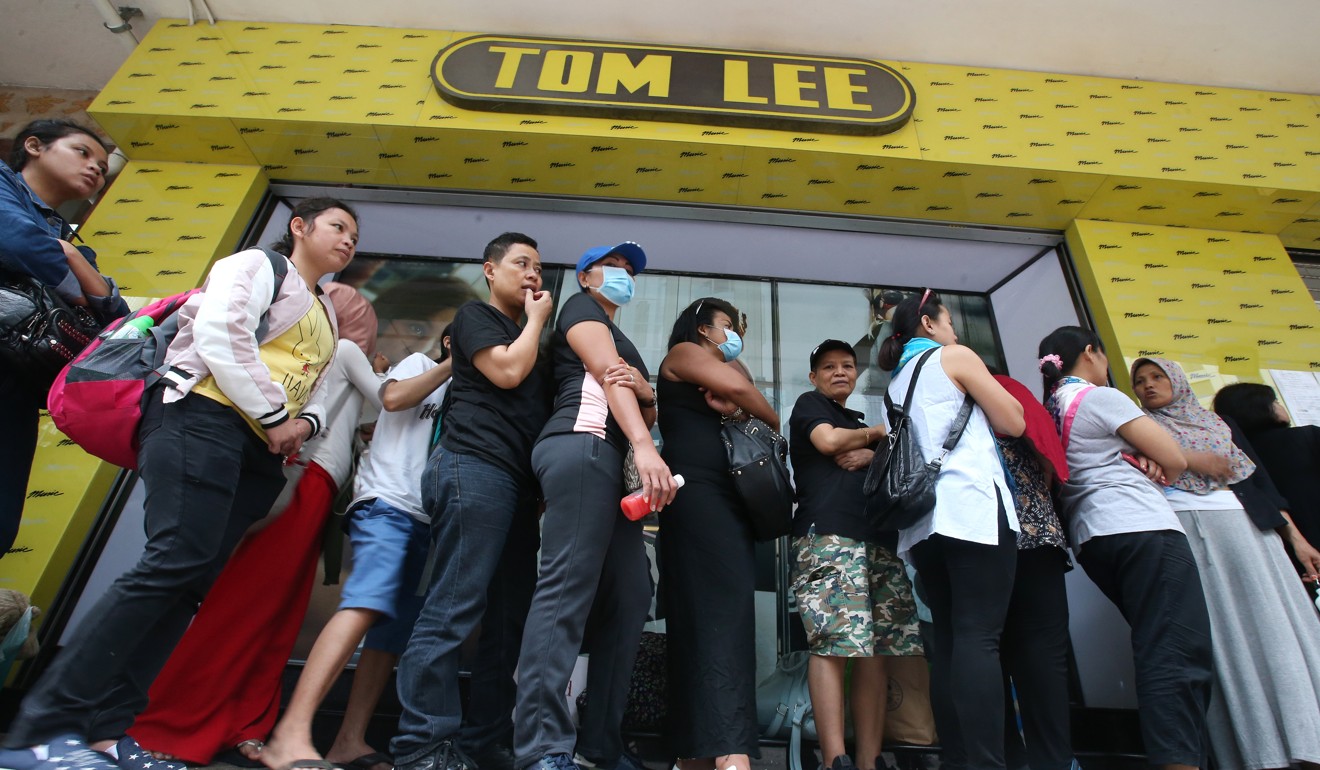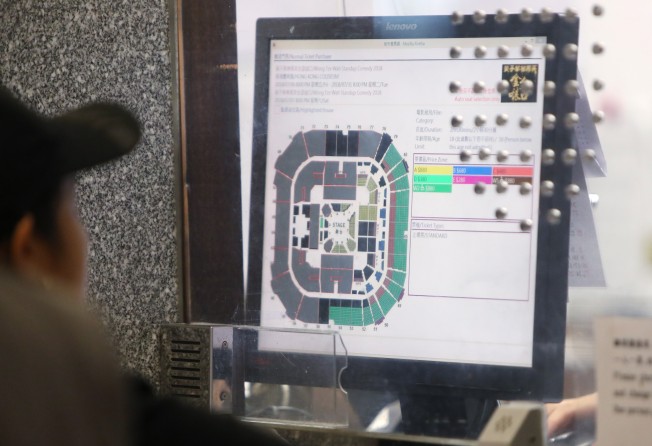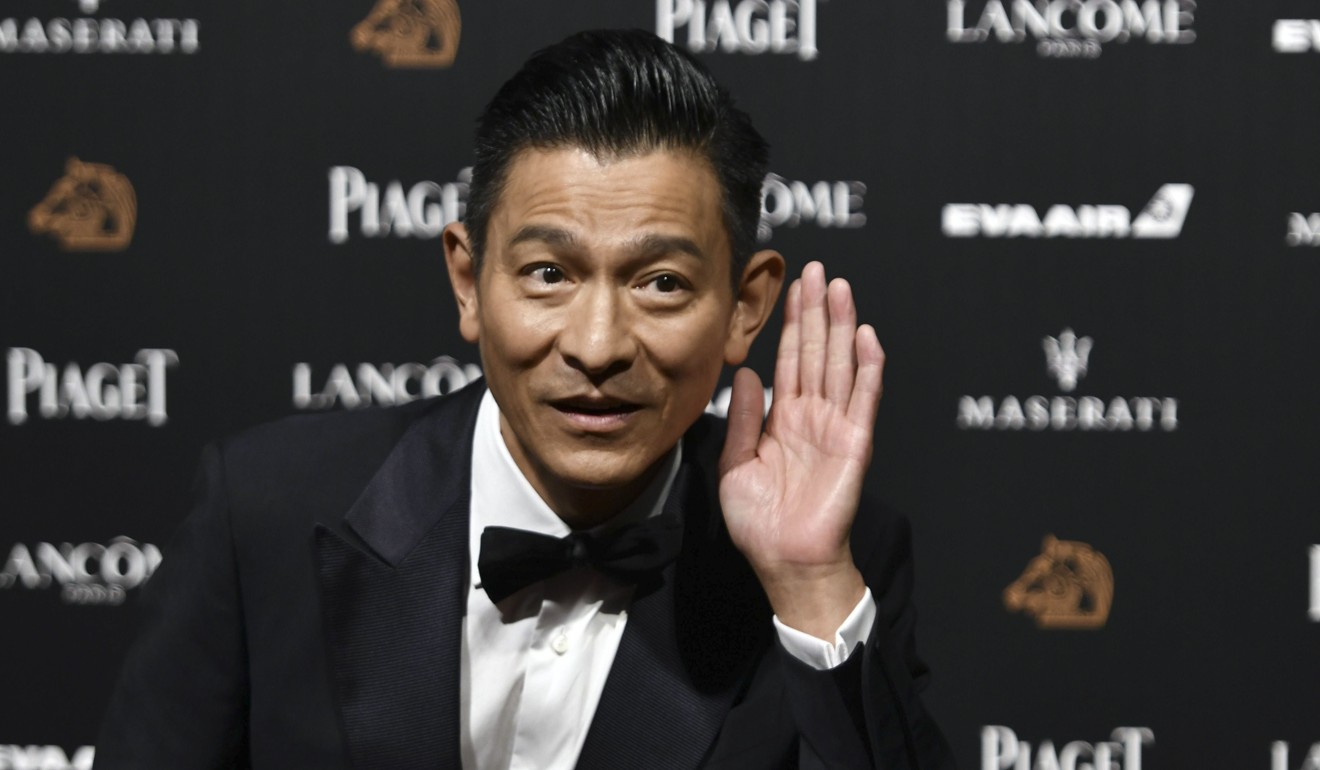
Government mulls plan to crack down on ticket touting, which would outlaw the practice at two publicly owned concert venues
- The government-run Hong Kong Coliseum and Queen Elizabeth Stadium are not currently covered by existing anti-scalping law
- Planned law could also force concert organisers to lower the proportion of tickets used for special allocations

Ticket scalping at two popular concert venues could be criminalised and the arrangement of special ticket allocations reviewed under a government plan to crack down on touting.
But part of the proposal released on Tuesday drew fire from the showbiz industry, which warned that changing internal subscription arrangements, by which tickets are allocated to business partners and subscribers, could undermine not only their interests but those of consumers too.
In a paper submitted to lawmakers on Tuesday, the Home Affairs Bureau said it did not object to criminalising touting at the government-managed Hong Kong Coliseum in Hung Hom and the Queen Elizabeth Stadium in Wan Chai, in light of “public concerns”.
The two venues and other premises managed by the Leisure and Cultural Services Department are not covered by the existing anti-scalping law, which forbids ticket resales at private venues at higher than face value.
But the existing law carries only a maximum fine of HK$2,000. The paper did not mention toughening the penalty.

An outcry over scalping erupted this summer after tickets for several popular shows were snapped up quickly and resold for up to 20 times the original price, despite fans having queued for days in advance at box offices.
Box office ticket sales for singer Andy Lau Tak-wah’s concerts had to be suspended in August following a knife attack in the counter queue, forcing fans to buy online or over the phone.
But the bureau said a “prudent” approach should be adopted when amending the law, as the move could affect ticket resales for events at the two venues, such as art performances and sports competitions, which may not be oversubscribed.
It said it also noted the concerns of the industry regarding “personalised ticketing”, which requires registration under the customer’s real name and for the ticket holder’s identity to be verified at the venue.
Operators worried the arrangement would undermine their business because ticket holders may have privacy concerns and the verification process could be time-consuming.
The bureau said it would continue to allow show organisers to decide whether to adopt personalised ticketing before a solution can be found to address privacy concerns.
While there were also calls for restrictions on special internal ticket allocations by concert organisers, the government said the ratio of specially allocated tickets could be “lowered gradually” but it would conduct a public consultation on what the percentage should be.

The industry has been very self-disciplined and has not abused this 80 per cent cap
At present, organisers of concerts at the two venues are allowed to distribute a maximum of 80 per cent of the tickets internally to their sponsors and co-organisers.
But in a statement issued on Tuesday, the Performing Industry Association objected to changing the ratio, saying the arrangement was meant only to give organisers flexibility.
The association added that some seats meant for internal sales could end up in open ticketing channels and, in the past, the public might stand to get on average about 65 per cent of the tickets sold.
It also warned that lowering the internal ticket allocation ratio was tantamount to “adding fuel to the fire”, as more tickets sold through public ticketing offices might mean more people engaging in ticket speculation.
“The industry has been very self-disciplined and has not abused this 80 per cent cap. All concert tickets are intended for external sale, and the so-called “internally subscribed” tickets will eventually end up in the hand of fans and the public,” it said.
The government however observed concert organisers had been using this mechanism for marketing purposes and for hedging financial risk, because organisers will place some of these seats on open sale based on overall sales performances.
Lawmakers were split on the proposal. Ma Fung-kwok, the lawmaker representing the culture and performing arts sector, agreed that the current ratio could provide flexibility to the industry and should not be changed.
He instead suggested concert organisers could voluntarily increase the public subscription rate.
Democratic lawmaker Au Nok-hin, vice-chairman of the Legislative Council’s home affairs panel, supported the government in reviewing the ratio, but said it must show determination and concrete action to counter the industry’s protectionism.